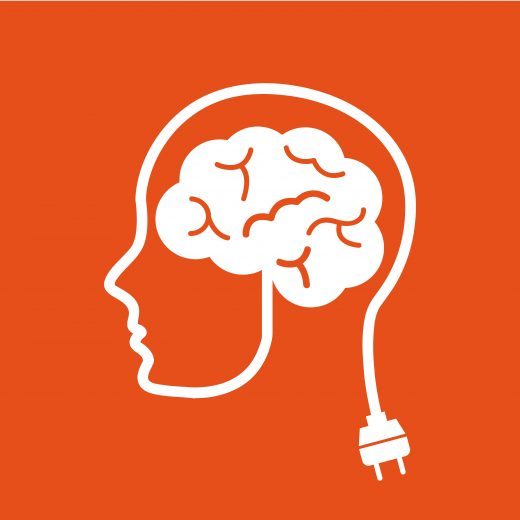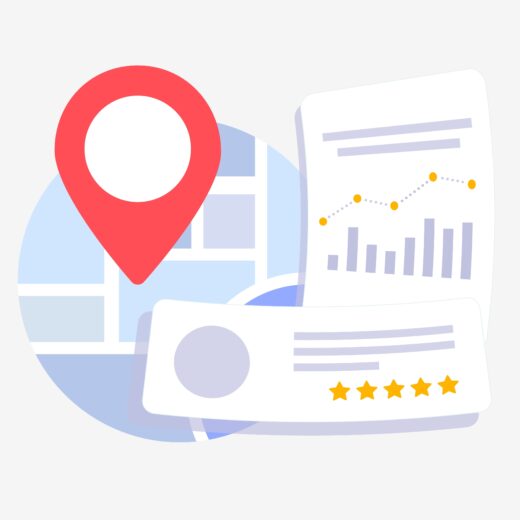What is RankBrain and How Does It Affect My SEO?

The terms ‘Google’ and ‘Artificial Intelligence’ in the same sentence have worried Digital Marketers over the last few weeks. Fortunately for us, it looks like RankBrain is likely to help your rankings by improving semantic search, and grouping terms and ideas together to deliver even more relevant results to users.
What is RankBrain?
In short, it’s the name given to a machine-learning AI system that helps Google to process results.
The longer version is that the system will take information from Google searches and results, and teach itself how to guess words with similar meanings and filter results to follow those patterns. It does that by turning written language into mathematical entities (called vectors) that computers can understand rather than just matching one word to another.
It’s not actually the first example of machine-learning that Google have rolled out – Panda came out in 2011 and used a machine learning-based algorithm to see what makes a quality website. Neither Panda nor RankBrain are deep learning systems because they still need input to work.
Is it the New Algorithm?
Not really. Hummingbird is Google’s general algorithm and RankBrain is one of the factors that helps Google decide what should rank in the same way that content, links, PageRank, and reputation are ranking factors. It’s the newest factor but it still just patches Hummingbird up and helps it work rather than making substantial changes to it.
So Why Have They Added RankBrain?
Simply put, semantic search needs to be developed further so that it works the way that Google want it to. In 2013 15% of Google searches were for things that had never been searched before – that number is probably lower now but it’s still a significant number of searches given that Google process 3 billion searches every single day. Google don’t always know exactly what to show for long-tail queries so RankBrain helps to match the questions to the content.
If that doesn’t quite make sense yet, here’s the example provided by Bloomberg:
When you search for ‘What’s the title of the consumer at the highest level of a food chain’ Google could misunderstand ‘consumer’ for customer (the more common definition), rather than someone/something that consumes food (the more scientific definition). The answer to this question is predator (or apex predator). That’s the answer you get if you Google ‘top level of the food chain’ but not the query above, so RankBrain would help to group this information together and make sure that searches like this one show more relevant results.
Is RankBrain Live Now?
RankBrain is currently operating and has been since early 2015, but it’s not ‘live’ as in always working online. It’s currently working through historical searches to make predictions – once those predictions are tested the latest version of RankBrain goes live. Then the system goes back to sorting through historical searches that are tested again, and the live version is updated again.
It’s likely that RankBrain development started quite a few years ago – in 2013 Google posted a blog about how a system (not yet called RankBrain) learned about capital cities by scanning news articles and using vectors to match capitals to their country.
How Does RankBrain Affect My SEO?
Well, nobody really knows yet. Google isn’t saying anything apart from the fact that it’s a ranking factor – the 3rd most influential one at that. Given the information that’s out there, I think that it means quality content on your site is more likely to rank for related items even if you don’t have the exact words on the page, whereas poor content with the exact wording is less likely to rank. By classifying content better, Google are opening up good pages to a larger audience searching for those terms but using slightly different language. This is great news for sites with quality content and good reputations, but worse news for sites with thin content just using long-tail keywords to rank for more unusual searches.
It also means that content could easily rise in the results for a long-tail keyword and then fall dramatically when those vectors are updated after an offline test.
I’d like to leave the last word to Ray Kurzweil, AI expert, author of The Singularity is Near, and the man Google hired to ‘bring natural language understanding to Google’:
“When you write an article you’re not creating an interesting collection of words. You have something to say and Google is devoted to intelligently organising and processing the world’s information. The message in your article is information, and the computers are not picking up on that. So we would like to actually have the computers read. We want them to read everything on the web and every page of every book, then be able to engage an intelligent dialogue with the user to be able to answer their questions…We are going to actually encode that, and really try to teach it to understand the meaning of what these documents are saying.”







